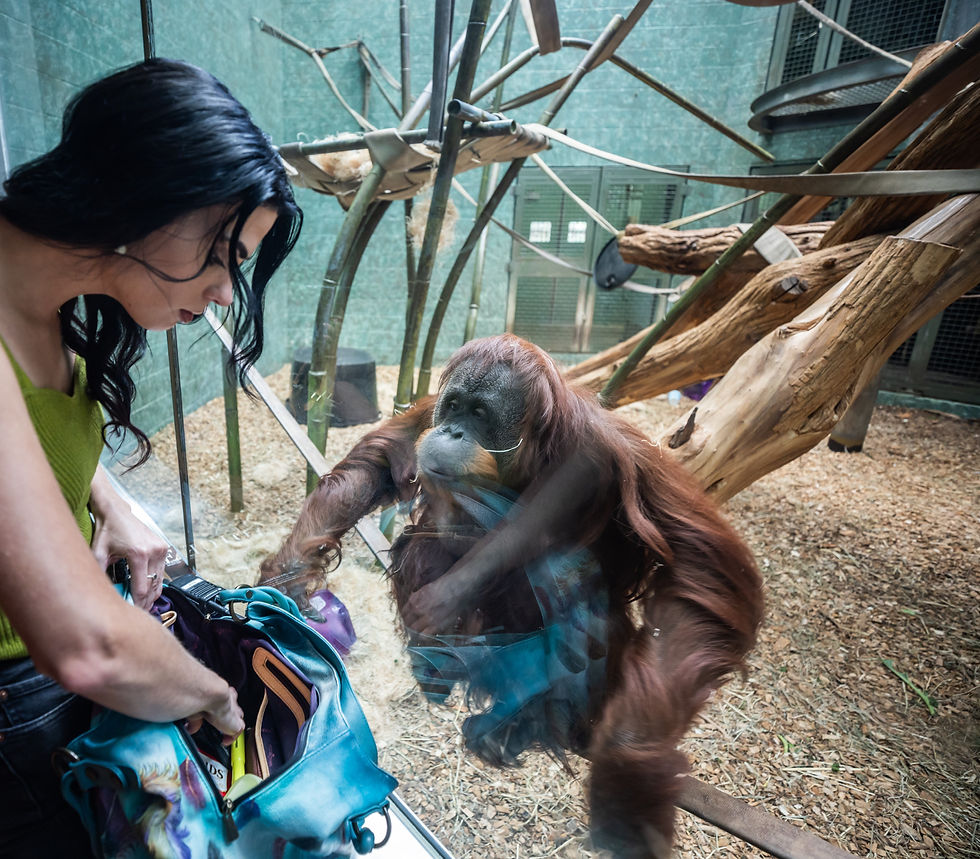I like to think I will Not Stop: A Q&A with Tori Murden McClure
- Information VOICE_TRIBUNE
- May 1, 2024
- 3 min read
By: Kevin Murphy Wilson
Photos provided by: Tori Murden McClure


We recently caught up with Tori Murden McClure, a local hero known for her many challenging roles: chaplain, lawyer, and university administrator among them. McClure ultimately secured her place in history (as evidenced by her popular exhibit in Louisville’s Frazier History Museum) with her daring escapades as an athlete and adventurer. She insists that, in spite of all the danger, these experiences were really all about reminding herself (and the rest of us) that “love and friendship are the things that make our humanity bearable.”
How in the world did you prepare yourself for scaling Lewis Nunatuck summit in Antarctica or your epic and now legendary Atlantic ocean crossing?
“I was in Divinity School, at Harvard, when I decided to ski across Antarctica to the geographic South Pole. I trained on roller skis, skiing about 20-miles a day on the bicycle paths along the Charles River.”
“In 1992, I tried out for the US Olympic Team as a rower. I did not make the team. I was too slow. I had an automobile accident on the way to the Olympic Trials, broke two ribs, and chipped my tibia, but I would have been too slow even without the accident. I was not fast enough to race at the Olympics, but I could go forever. I just picked a longer racecourse.”
Were there any particularly harrowing moments when you thought, “How did I get myself into this?” during your many adventures?
“There have been dozens of harrowing moments. The most life-threatening was tossing through Hurricane Danielle in a 23-foot rowboat.”
Was your connection with Muhammad Ali an impactful one for you personally?
“I do not know anyone who spent significant time with Muhammad Ali who was not changed by the experience. After Hurricane Danielle, Muhammad asked me, ‘Were there times [out on the ocean], when you wondered, why am I here?’ I answered, ‘Were there times in the boxing ring when you wondered, why am I here?’ Muhammad just laughed. We both laughed. ‘Why am I here?’ is a close cousin to ‘How did I get myself into this?’”
As someone still very much alive and well and active, did it seem somewhat surreal to be included in the Frazier History Museum?
“Yes, it is surreal. Almost as surreal as watching a musical based on one’s life. Two amazingly gifted artists, Dawn Landes and Daniel Goldstein, wrote a musical based on my book, A Pearl in the Storm. The show is titled, ‘Row.’ It is smart, funny, and extraordinarily faithful to my book. There have been moments, in this past year, when I wanted to vent my temper. What stops me is that I do not want to do anything that might bring shame to the writers of ‘Row.’ They have worked too hard for me to give into being small.
Spalding University has been greatly reinvigorated since you first took the helm of that historic institution. What comes next for you now that your time as President is winding down?

“I am proud of the twenty-five years I have spent in service to Spalding University, fourteen as the President. I am not sure what is next. There are some short-term ambitions: build a small sailboat and learn how to sail it. I would like to learn how to weld. I expect that in a few short months, I will be looking for another challenging job. I am a firm believer in the Biblical passage from Luke, ‘To whom much is given, much shall be expected.’ I think I am still searching for ways to improve our community, and I like to think I will not stop.”
“Even though rowers make progress by facing backwards, I am not genuinely wired to look at how far I have come. When I consider my childhood, I feel lucky to have traveled in a positive direction. However, when I consider all the problems that I have not been able to solve, all the people I have not been able to help, I see only the distance we have left to travel. There is much work left to be done. I hope my legacy is that I did my part or that I never stopped trying.”




Comments